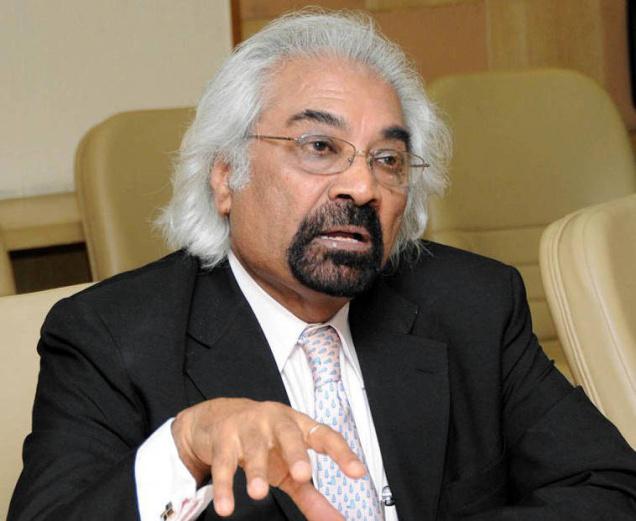


The Chairman of Indian Overseas Congress, Sam Pitroda, has once again stirred controversy with his comments on the diversity of India. During an interview, Pitroda referred to the physical appearance of people from different regions of India, causing outrage and backlash. Despite praising India as a shining example of democracy, Pitroda's remarks have sparked heated debates on the topic of unity and diversity in the country.
Diversity and Controversy in India: Sam Pitroda's Comments Stir Debate
Background:
India is a vast and diverse country, home to a kaleidoscope of cultures, languages, and ethnicities. This diversity has been a source of both celebration and conflict throughout history.
Pitroda's Comments and Backlash:
In a recent interview, Sam Pitroda, Chairman of the Indian Overseas Congress, sparked controversy with his remarks on India's physical diversity. Pitroda stated that "North Indians look like Chinese and Dravidians look like Africans," a comment that was widely criticized as offensive and divisive.
Pitroda's comments sparked outrage and backlash on social media and beyond. Critics accused him of promoting prejudice and undermining India's unity.
Heated Debates on Unity and Diversity:
Pitroda's remarks ignited heated debates on the topic of unity and diversity in India. Some argued that India's strength lies in its diversity, while others expressed concerns about divisions based on region, religion, or caste.
The debate also raised questions about the role of public figures in fostering unity and promoting tolerance.
FAQs Related to Pitroda's Comments and India's Diversity:
1. What exactly did Sam Pitroda say?
Pitroda referred to the physical appearance of people from different regions of India, stating that "North Indians look like Chinese and Dravidians look like Africans."
2. Why were his comments controversial?
Pitroda's comments were considered offensive and divisive because they stereotyped people based on their region and promoted a narrative of racial superiority.
3. What is the significance of the term "Dravidian"?
Dravidian refers to a group of South Indian languages and cultures that are distinct from the Indo-Aryan languages and cultures of North India.
4. What is the history of racial and ethnic tensions in India?
India has a long history of racial and ethnic tensions, including conflicts between North and South Indian states, and divisions based on caste and religion.
5. What are the challenges to promoting unity and diversity in India?
Promoting unity and diversity in India requires addressing issues such as poverty, unemployment, and communalism, as well as fostering tolerance and respect for different cultures and identities.

Prime Minister Narendra Modi made a surprise visit to INS Vikrant, India's flagship aircraft carrier, on Diwali eve 2025. This marked his first visit to the high seas to celebrate with the Navy personnel stationed there. His visit included cultural activities, a yoga session, and an inspiring address to the naval staff, further strengthening the bond between the leader and the armed forces.

Prime Minister Narendra Modi celebrated Diwali with the Indian Navy on the INS Vikrant aircraft carrier stationed off the coast of Goa and Karwar. The cultural programme organized by the Navy was described by PM Modi as an unforgettable experience. He also praised the dedication and creativity of the naval personnel and highlighted the success of the armed forces in Operation Sindoor with a patriotic song "The Vow of Sindoor". In addition, PM Modi also addressed the country's security forces and lauded their efforts in combating Naxalism.

In a powerful Diwali speech on board INS Vikrant, Prime Minister Narendra Modi lauded the coordination of India's armed forces in Operation Sindoor, which led to a swift surrender by Pakistan. He also emphasized the importance of self-reliance in strengthening the armed forces and highlighted India's progress in manufacturing essential military equipment domestically. He further announced India's goal to become a top defence exporter, with a significant increase in defence exports in the last decade.

Prime Minister Narendra Modi continued his tradition of celebrating Diwali with India's armed forces by visiting the INS Vikrant off the coast of Goa and Karwar. He praised the Navy personnel for their dedication towards the security of the nation and expressed his gratitude to the families of the brave soldiers. PM Modi also witnessed an impressive display of precision and prowess during an Air Power Demo on INS Vikrant, showcasing the technological excellence of the Indian Navy.

Prime Minister Narendra Modi celebrated Diwali 2025 with Indian Navy personnel aboard the indigenous aircraft carrier INS Vikrant, highlighting the ship's strength and psychological impact on adversaries. Commissioned in 2022, the carrier is a symbol of India's self-reliance and strategic resolve. PM Modi praised the bravery and dedication of the naval personnel, reinforcing the bond between the armed forces and the government.

The Allahabad High Court has directed the Jailer of Hisar Central Jail in Haryana to provide an explanation on how self-styled Godman Sant Rampal, currently held in the jail, is able to write and distribute books that allegedly target Hindu deities. This comes after a plea was filed by Hindu Front for Justice, calling for a ban on the books and action against Rampal. The petition alleges that the books contain offensive and provocative language and have been distributed through electronic communication platforms, causing disharmony between religious communities.

Following the latest string of scandals involving Prince Andrew, King Charles was photographed attending a Sunday morning service near his Scottish estate. The King wore a solemn expression as he drove to Crathie Kirk, displaying tension amidst a tumultuous time for the royal family. Recently, Prince Andrew announced his resignation from the Duke of York and membership of the Order of the Garter, the oldest chivalric order in the UK.

The nation's political leaders, including Prime Minister Modi, President Murmu, and Union Minister Amit Shah, took to social media to extend their warm wishes to the country on the occasion of Diwali. They highlighted the significance of the festival and urged people to celebrate it responsibly and with mutual love and harmony. EAM Jaishankar also wished everyone a happy and prosperous Diwali.

GB News journalist Nana Akua and royal fans are calling for King Charles to follow in Prince Andrew's footsteps and strip Prince Harry and Meghan Markle of their royal titles. This comes after the Duke of York voluntarily gave up his titles in light of the ongoing scrutiny surrounding his association with Jeffrey Epstein. Nana Akua ridiculed Meghan Markle's business ventures and urged the King to take away her Duchess of Sussex title in order to prevent her from setting foot in the UK again.

During a speech for Deepotsav 2025 celebrations in Ayodhya, Uttar Pradesh Chief Minister Yogi Adityanath criticized the opposition for denying Lord Ram's existence and obstructing the Ram Janmabhoomi Temple movement. He specifically called out the Congress for submitting an affidavit to the Supreme Court calling Lord Ram a myth and accused the Samajwadi Party of firing bullets at Ram devotees. Adityanath also emphasized the determination and resilience of the movement, which began in 1949 with the resolution "Ram Lalla Hum aayenge, Mandir wahin banayenge" and continues to this day.